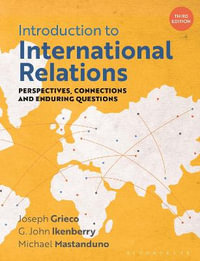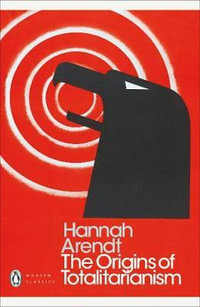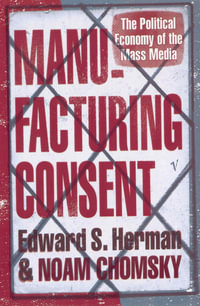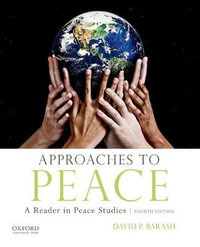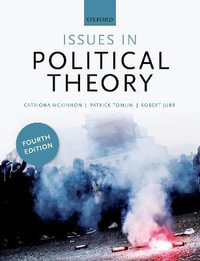
At a Glance
Hardcover
$63.75
or
Aims to ship in 15 to 25 business days
When will this arrive by?
Enter delivery postcode to estimate
Azar Gat sets out to resolve one of the age-old questions of human existence: why people fight and can they stop.
Spanning warfare from prehistory to the 21st century, the book shows that, neither an irresistible drive nor a cultural invention, deadly violence and warfare have figured prominently in our behavioural toolkit since the dawn of our species. People have always alternated between cooperation, peaceful competition, and violence to attain evolution-shaped human desires. A marked shift in the balance between these options has occurred since the onset of the industrial age. Rather than modern war becoming more costly (it hasn't), it is peace that has become more rewarding. Scrutinizing existing theories concerning the decline of war - such as the 'democratic peace' and 'capitalist peace' - Gat shows that they in fact partake of a broader Modernization Peace that has been growing since 1815. By now, war has disappeared within the world's most developed areas.
Finally, Gat explains why the Modernization Peace has been disrupted in the past, as during the two World Wars, and how challenges to it may still arise. They include claimants to alternative modernity - such as China and Russia - anti-modernists, and failed modernizers that may spawn terrorism, potentially unconventional. While the world has become more peaceful than ever before, there is still much to worry about in terms of security and no place for complacency.
Spanning warfare from prehistory to the 21st century, the book shows that, neither an irresistible drive nor a cultural invention, deadly violence and warfare have figured prominently in our behavioural toolkit since the dawn of our species. People have always alternated between cooperation, peaceful competition, and violence to attain evolution-shaped human desires. A marked shift in the balance between these options has occurred since the onset of the industrial age. Rather than modern war becoming more costly (it hasn't), it is peace that has become more rewarding. Scrutinizing existing theories concerning the decline of war - such as the 'democratic peace' and 'capitalist peace' - Gat shows that they in fact partake of a broader Modernization Peace that has been growing since 1815. By now, war has disappeared within the world's most developed areas.
Finally, Gat explains why the Modernization Peace has been disrupted in the past, as during the two World Wars, and how challenges to it may still arise. They include claimants to alternative modernity - such as China and Russia - anti-modernists, and failed modernizers that may spawn terrorism, potentially unconventional. While the world has become more peaceful than ever before, there is still much to worry about in terms of security and no place for complacency.
Industry Reviews
It would be a welcome addition to any military history or international relations syllabus lacking an accessible and thought-provoking text on the causes of war... Highly recommended * CHOICE *
Gat's book is a very well-informed, well-argued and an agreeable to read discussion of the causes of war and the causes of the spread of peace. Though primarily of interest to political theorists working on the subject of war, it may also be of interest to philosopher working on the question of war, especially to philosophers who, rather than engaging in ever more sophisticated thought-experiments, prefer to develop a more general philosophical theory of war. * Norbert Campagna, Ethical Perspectives *
Azar Gat is among the most brilliant of historians of war, with a masterful command of history and biology, and a gift for combining them to provide deep and revelatory insight. War has long been considered an enigma of the human condition, but after reading this book you will feel that you understand it. * Steven Pinker, Johnstone Professor of Psychology, Harvard University, and author of How the Mind Works and The Better Angels of Our Nature *
Exhilarating - it makes clear and brave statements rather than hedging contentious matters... * Sir Paul Collier, Professor of Economics and Public Policy, Blavatnik School of Government, University of Oxford *
Gat's book is a very well-informed, well-argued and an agreeable to read discussion of the causes of war and the causes of the spread of peace. Though primarily of interest to political theorists working on the subject of war, it may also be of interest to philosopher working on the question of war, especially to philosophers who, rather than engaging in ever more sophisticated thought-experiments, prefer to develop a more general philosophical theory of war. * Norbert Campagna, Ethical Perspectives *
Azar Gat is among the most brilliant of historians of war, with a masterful command of history and biology, and a gift for combining them to provide deep and revelatory insight. War has long been considered an enigma of the human condition, but after reading this book you will feel that you understand it. * Steven Pinker, Johnstone Professor of Psychology, Harvard University, and author of How the Mind Works and The Better Angels of Our Nature *
Exhilarating - it makes clear and brave statements rather than hedging contentious matters... * Sir Paul Collier, Professor of Economics and Public Policy, Blavatnik School of Government, University of Oxford *
ISBN: 9780198795025
ISBN-10: 0198795025
Published: 11th May 2017
Format: Hardcover
Language: English
Number of Pages: 320
Audience: General Adult
Publisher: Oxford University Press UK
Country of Publication: GB
Dimensions (cm): 25 x 16.5 x 3
Weight (kg): 0.56
Shipping
| Standard Shipping | Express Shipping | |
|---|---|---|
| Metro postcodes: | $9.99 | $14.95 |
| Regional postcodes: | $9.99 | $14.95 |
| Rural postcodes: | $9.99 | $14.95 |
How to return your order
At Booktopia, we offer hassle-free returns in accordance with our returns policy. If you wish to return an item, please get in touch with Booktopia Customer Care.
Additional postage charges may be applicable.
Defective items
If there is a problem with any of the items received for your order then the Booktopia Customer Care team is ready to assist you.
For more info please visit our Help Centre.
You Can Find This Book In
This product is categorised by
- Non-FictionHistoryMilitary History
- Non-FictionPolitics & GovernmentPolitical ActivismArmed Conflicts
- Non-FictionWarfare & DefenceTheory of Warfare & Military Science
- Non-FictionReference, Information & Interdisciplinary SubjectsInterdisciplinary StudiesPeace Studies & Conflict Resolution
- Non-FictionSociety & CultureSocial Issues & ProcessesViolence in Society
- Text BooksHigher Education & Vocational TextbooksPolitics Higher Education Textbooks
